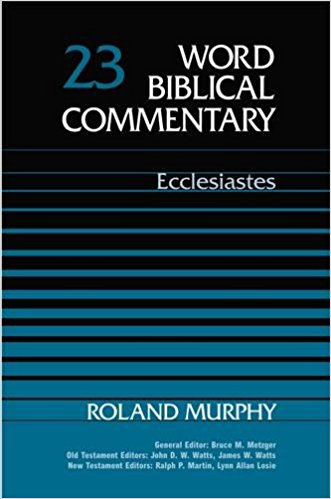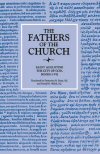- not to missed for this good commentary series
Word Biblical Commentary, Volume 23a: Ecclesiastes
The Word
Biblical Commentary delivers the best in biblical scholarship, from the
leading scholars of our day who share a commitment to Scripture as
divine revelation. This series emphasizes a thorough analysis of
textual, linguistic, structural, and theological evidence. The result is
judicious and balanced insight into the meanings of the text in the
framework of biblical theology. These widely acclaimed commentaries
serve as exceptional resources for the professional theologian and
instructor, the seminary or university student, the working minister,
and everyone concerned with building theological understanding from a
solid base of biblical scholarship.
Get an Additional Book for US$1.99
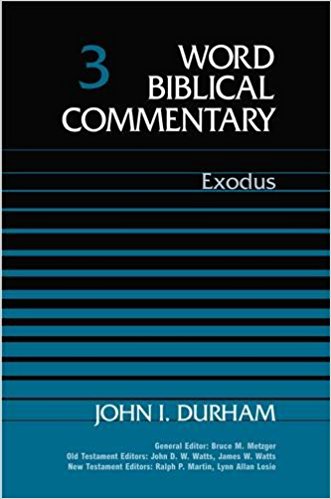 Word Biblical Commentary, Volume 3: Exodus
Word Biblical Commentary, Volume 3: Exodus
Add a Third Book for US$9.99
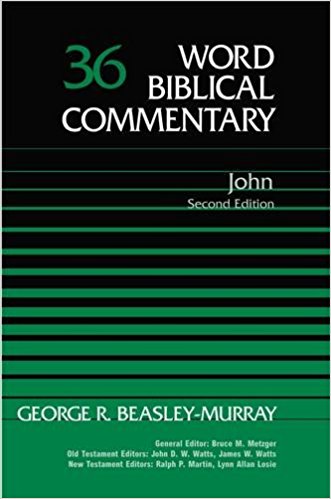 Word Biblical Commentary, Volume 36: John (Second Edition)
Word Biblical Commentary, Volume 36: John (Second Edition)
Verbum monthly free ebook:
Saint Augustine: The City of God, Books I–VII
by Augustine of Hippo
Perhaps
one of the most profound treatises on Christianity and government, the
City of God envisions Christianity as a spiritual force, which should
preoccupy itself with the heavenly city, New Jerusalem, rather than the
earthly municipal and state affairs. The Fathers of the Church Series
has divided this ancient classic into three convenient volumes.
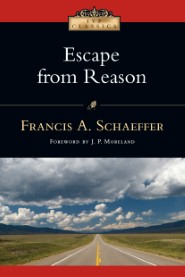 Faithlife monthly free ebook:
Faithlife monthly free ebook:
Escape from Reason
Truth used to be based on reason. No more.Now, what we feel is the truest source of reality. Despite our obsession with the emotive and the experiential, we still face anxiety, despair, and purposelessness.
How did we get here? And where do we find a remedy?
In this modern classic, Francis A. Schaeffer traces trends in twentieth-century thought and unpacks how key ideas have shaped our society. Wide-ranging in his analysis, Schaeffer examines philosophy, science, art and popular culture to identify dualism, fragmentation and the decline of reason. Schaeffer's work takes on a newfound relevance today in his prescient anticipation of the contemporary postmodern ethos. His critique demonstrates Christianity's promise for a new century, one in as much need as ever of purpose and hope.
